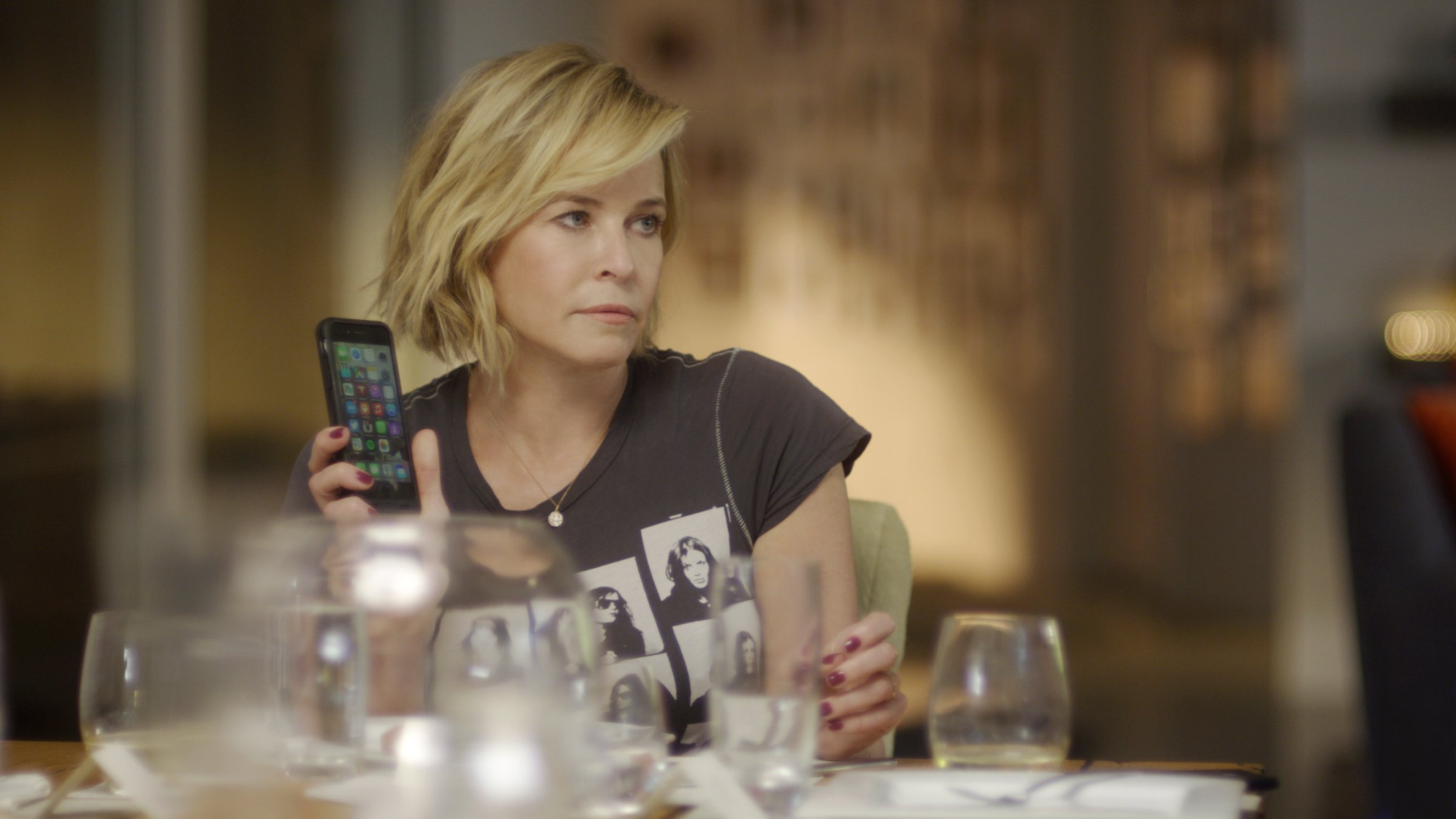
Chelsea Handler, for a long time, was the sort of figure that gives detractors a special sort of pain. It’s one thing just to dislike an entertainer’s work; that’s easy and can even be fun! But when the entertainer in question is undeniably a unique figure—in Handler’s case, she was for several years the only woman in late night, until E!’s Chelsea Lately ended in 2014—it makes it a little harder, or at least less enjoyable, to pick the work apart. Sure, Handler’s reliance on gags about the Kardashian family, Angelina Jolie, and black men was dull-minded at best (and got her a bit of flak from time to time), but she was the One. She should be seen within the full context of late night. At least she was doing something different!
That conversation, as it pertains to Handler, is over now: With the addition of Trevor Noah, Larry Wilmore, and Samantha Bee, late night looks a bit more diverse, and Handler has moved to Netflix. Ahead of her planned talk show (about which details are still hazy) comes Chelsea Does, a four-part documentary series, launching Jan. 23, in which Handler investigates four social issues: Marriage, race, the tech industry and drug use. They’re wildly diverse subjects, but each episode has a similar structure. The marriage episode is structured around whether or not Chelsea should get married. The race episode’s central question is why people think Chelsea is racist! The tech episode is, in a meta fashion, about Chelsea’s anxieties about doing a show for Netflix. And the drugs episode is about how people think Chelsea is an alcoholic, but she’s not. (“I glorify the lifestyle that I lead, I definitely glorify it,” she says. “I think it’s glorifiable.”)
These loglines are facetious, sort of. Handler and her team wrangle genuinely impressive interviews, like former Israeli president Shimon Peres and the family of South Carolina shooting victim Walter Scott, for the race episode. But Handler, an avid reader who generally uses press interviews to attempt to dispel the notion that her actual personality is the one we see on TV, invariably brings the conversation back to herself. The “marriage” episode, for instance, features When Harry Met Sally-style interviews with married couples speaking directly to camera about how their relationships work. It’s perfectly cute. But by episode’s end, these interviews are revealed to be building toward questions about what the couples think of Chelsea’s marriage chances.
Even considering Handler’s fame and cadre of fans, who cares? Handler was given seemingly boundless resources by a streaming service, traveled the world, and came back realizing what really matters is herself. Confessional art is one (often wonderful) thing, and confessional art made by women is too often torn apart unthinkingly. But a lengthy meditation by a famous person on their own public image is only interesting if that public figure is doing real reflection. Handler, by contrast, is openly dismissive of anyone who challenges her point-of-view.
The race episode is the most pernicious example of that: Handler convenes a panel of activists seemingly only to berate them about how they are wrong and she is right about political correctness. When one blandly repeats a joke she once told about the child Pax Jolie-Pitt, she immediately laughs out loud. “I would never, ever apologize publicly,” she says.
This is in line with the current conventional wisdom among comedians that even suggesting that a comedian’s joke may have crossed a line is a horrifying violation of free speech. It’s never not self-serving, but in Handler’s case it also seems sort of untrue. She won’t apologize, but people supremely confident that their critics are wrong don’t usually make four-part documentary series about their critics’ claims.
Rarely has a public person been so interested in what people are saying about her, but so unequipped to hear them. When it’s suggested she should find some positive stories about non-white people, Handler asks “Where do I go: On Tinder?” A couple of episodes later, Handler is in Peru, where she pays a local shaman money to give her an authentic experience and jokes about his bowel movements. That might have been a chance!
In the series’s final moments, Handler announces, “The only opinion I’m concerned about is, really, my own. I’m really happy.” Good for her! But confusing for the viewer, who has always known Handler as a comedian who, as the cliché goes, says what everyone’s thinking. The simple fact is that even those critics Handler’s so concerned with (and I’m one) are just not thinking about her this much. It’s hard not to end up, exhausted, at the place one always does with Handler: Look, if she’s happy, I’m happy for her.
More Must-Reads from TIME
- How the Electoral College Actually Works
- Your Vote Is Safe
- Mel Robbins Will Make You Do It
- Why Vinegar Is So Good for You
- The Surprising Health Benefits of Pain
- You Don’t Have to Dread the End of Daylight Saving
- The 20 Best Halloween TV Episodes of All Time
- Meet TIME's Newest Class of Next Generation Leaders
Contact us at letters@time.com